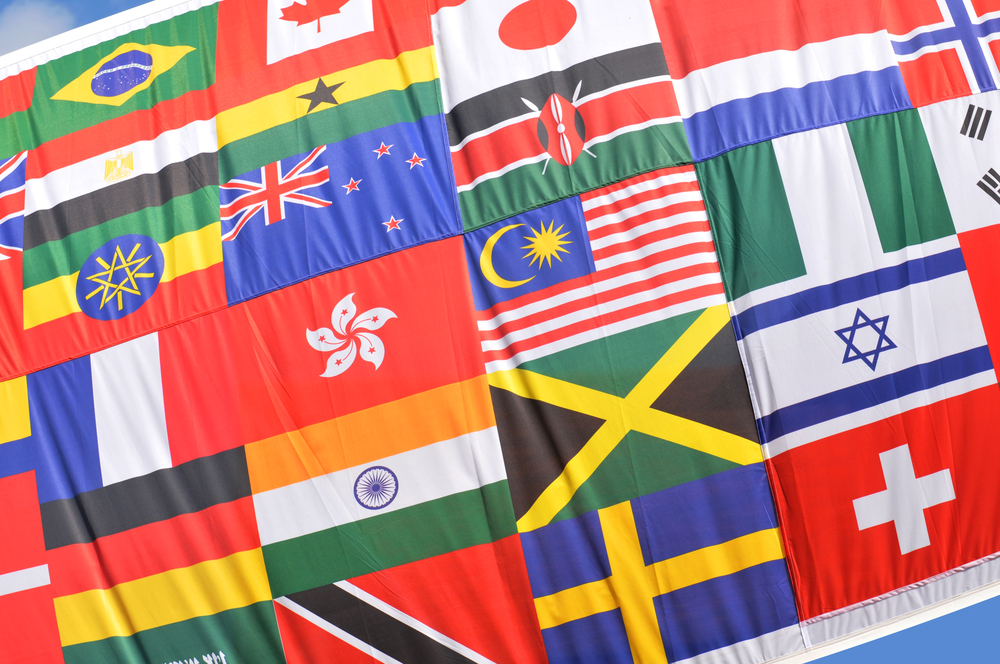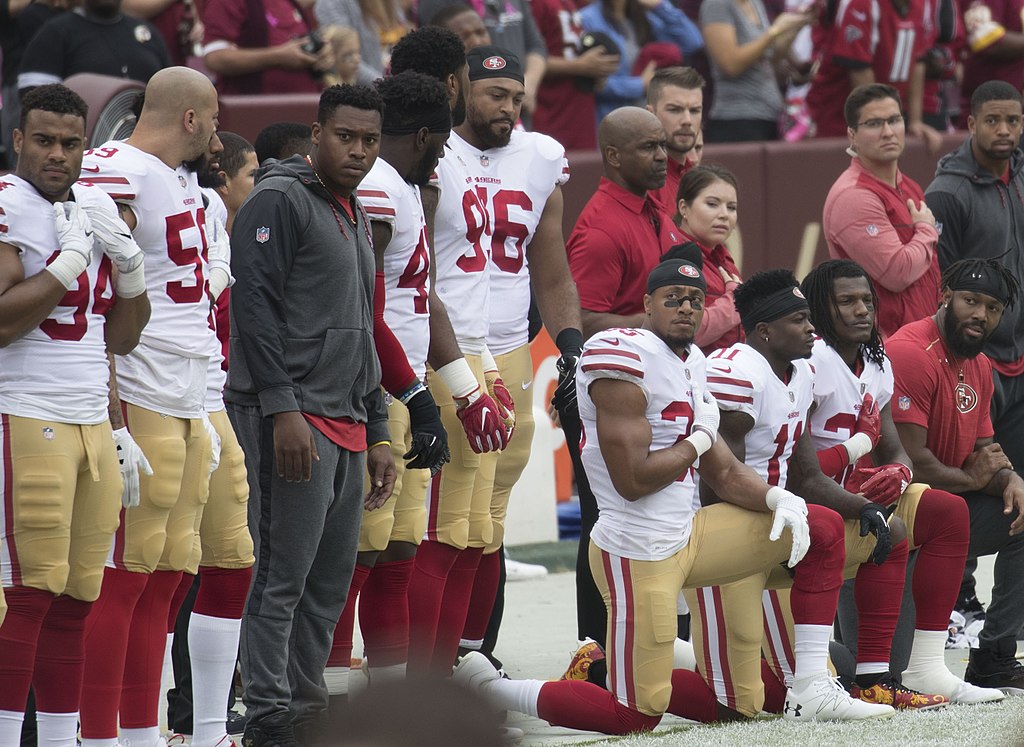As a child, I savored July weekends at the carnival in my grandparents’ town of Wamego, KS. Nowhere on earth was Independence Day, and the lingering celebration of American freedom, taken more seriously and celebrated with more enthusiasm. But today, these holidays and traditions draw as much criticism as they do excitement.
Recent events, crises, national shames and national triumphs, make it difficult to know what to do or how to feel during the summer holidays when most Americans spend their weekends in flag-adorned swimming trunks, celebrating the land of the free and the home of the brave. A new question confronts us during the summer holiday season: is it wrong to participate in celebrating a nation so rife with inequality, racial and gender injustice, and environmental degradation? Are these celebrations and traditions merely an attempt to put an optimistic gloss on a nation that we ought to feel anything but optimistic about? And more cynically, does participating in these activities serve to normalize the harsh and unjust conditions that many Americans still face?
G.K. Chesterton, a philosopher, theologian, and fiction writer from the early 20th century, considered similar questions regarding whether we should love the world — for, after all, the world contains many deeply terrible and unlovable things! Should we be optimists about the world, he asks, because it contains so many things of deep value? Or ought we to be pessimists about the world because there is so much suffering, and evil, and injustice, with seemingly no end? Chesterton ends up endorsing a third view in his book Orthodoxy:
[There] is a deep mistake in this alternative of the optimist and the pessimist. The assumption of it is that a man criticises this world as if he were house-hunting, as if he were being shown over a new suite of apartments. […] A man belongs to this world before he begins to ask if it is nice to belong to it. He has fought for the flag, and often won heroic victories for the flag long before he has ever enlisted. To put shortly what seems the essential matter, he has a loyalty long before he has any admiration.
Chesterton suggests here that loyalty is not something we choose to exhibit based on likeable features, but rather is something that we automatically display whenever we do work to make things better. Through this work, Chesterton argues, we show love and loyalty to a world that, yes, is probably quite bad. Conversely, by refusing to participate in this kind of labor of love, we resign the world to a quickly-worsening fate. So, loving a bad world can actually be a good thing, if Chesterton is right, because this sort of love leads to loving improvement.
There are problems with applying this view straightforwardly to our attitude on national pride — namely, while we cannot choose loyalty toward some other planet, we could choose loyalty toward another country. One obvious response to this objection is that there are no perfect countries! As we have seen in the past couple years, other nations have followed the U.S. in forming Black Lives Matter groups and holding demonstrations protesting local instances of racially motivated police brutality. Additionally, following Chesterton, we may wonder what the world would look like if everyone poured their loyalties and efforts into the very “best” countries (whatever they take them to be): without a people willing to love a place despite its deep flaws, is there any hope of improving conditions from within?
Chesterton suggests that the love we feel for the place we live need not lead to negative effects. But not everybody agrees that there is no harm in showing such naive loyalty. The philosopher David Benatar, in his book Better to Never Have Been, argues that, given the insufferable nature of human existence, humankind ought not to participate in perpetuating the cycle of life. His position, called “anti-natalism,” argues against the permissibility of procreation and in favor of working to reduce suffering for those who are already born. In support of this conclusion, he emphasizes two supporting points: 1) even in a very good life, the pain and suffering one must endure will always outweigh the pleasure and happiness they enjoy, and 2) there is no greater meaning or purpose to give a life of suffering any value.
Benatar echoes strains of French existentialist philosopher Albert Camus’s “The Myth of Sisyphus” and The Plague in his description of human life as “absurd” — short and full of meaningless labor on the way to ultimate annihilation. If life in the world truly is this bad, even for people for whom it is “best,” then why allow it to continue? Ultimately, Benatar does not endorse hastening death for oneself or others — while life is overall a negative experience in virtue of the pain and suffering overwhelming the happy points, death (especially the process of dying) is even worse than life. But we should allow humanity to die out by refusing to procreate. This, then, is the opposite of what Chesterton calls an attitude of “loyalty” toward life on earth. Benatar sees this loyalty as blind faith and a cruel refusal to try to halt the long chain of suffering that human existence has wrought.
This perspective on earthly existence can help shed light on the position of those who choose not to participate in celebrations and traditions of national pride. Analogous to the anti-natalist, those against participation in such celebrations may see this kind of unconditional national pride as a mechanism for the continuation of the sufferings, injustices, and inequalities that mar the current state of the nation. Understandably, many may see this as an unacceptable price to pay for showing even the kind of self-sacrificial patriotic love that Chesterton discusses. Perhaps patriotic celebrations of national love or pride are themselves cruel refusals to fully grieve the ways in which citizens continue to face severe hardships and injustices.
So, what should we do? Should we join in the celebrations, ensuring that we include voices of criticism alongside voices of praise as equally important aspects of patriotic love? Or should we opt out of the celebrations, allowing our silence to send a message to others that the pain of discrimination, poverty, brutality, and other injustices, make our nation one that is not worth fighting for? Regardless of whether we choose to participate in specific forms of national traditions and celebrations, it may be worth taking to heart part an insight from Chesterton and an insight from Benatar. Chesterton brings our attention to the fact that things are rarely made better without people willing to love them despite terrible flaws. We might remember President Joe Biden’s response earlier this year when asked by reporters about his son’s struggles with drug and alcohol addictions, stating simply, “I’m proud of my son.”
Benatar, on the other hand, shows us that it is important to be discerning about who and what are worth loving and improving. While Benatar thinks that human life on earth is not worth furthering, loving and improving the lives of those humans who already exist is of supreme importance. And he argues it is perfectly consistent to reject loving “human life” while continuing to love individual living humans. Likewise, perhaps it is perfectly consistent to reject pride in a nation while loving and serving the individual people of that nation.
Both of these thinkers draw our attention to the fact that “pride” is more complex than we, or our national celebrations, have tended to realize. Is it possible to see the value both in participation and in abstention from celebrations of national pride? Alternatively, how can these celebrations incorporate a deep awareness of the ways in which we still struggle with discrimination, poverty, brutality, and injustice? Is our love for our country strong enough to weather the acknowledgment of these criticisms? Is our love for our fellow citizens deep enough to inspire us to take up a kind of love for our country, if that love could be transformative?


